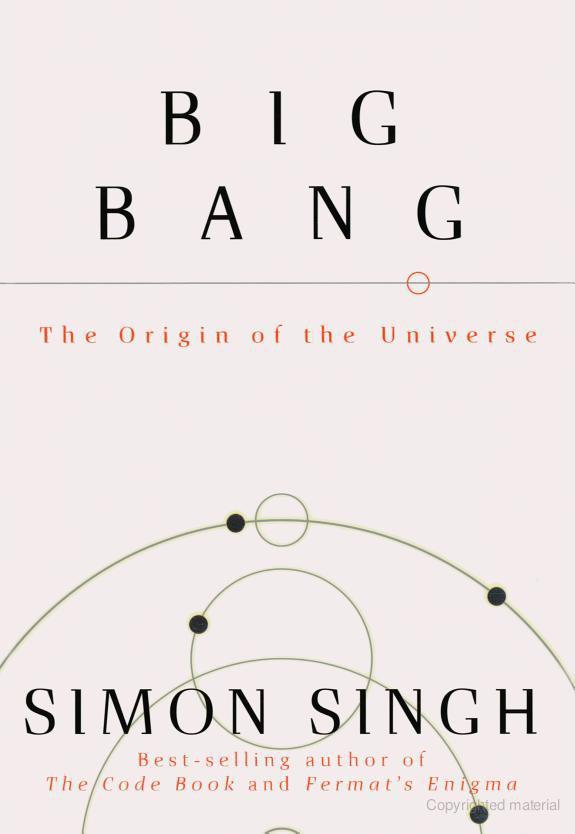

Most ebook files are in PDF format, so you can easily read them using various software such as Foxit Reader or directly on the Google Chrome browser.
Some ebook files are released by publishers in other formats such as .awz, .mobi, .epub, .fb2, etc. You may need to install specific software to read these formats on mobile/PC, such as Calibre.
Please read the tutorial at this link: https://ebookbell.com/faq
We offer FREE conversion to the popular formats you request; however, this may take some time. Therefore, right after payment, please email us, and we will try to provide the service as quickly as possible.
For some exceptional file formats or broken links (if any), please refrain from opening any disputes. Instead, email us first, and we will try to assist within a maximum of 6 hours.
EbookBell Team

4.8
54 reviewsA half century ago, a shocking Washington Post headline claimed that the world began in five cataclysmic minutes rather than having existed for all time; a skeptical scientist dubbed the maverick theory the Big Bang. In this amazingly comprehensible history of the universe, Simon Singh decodes the mystery behind the Big Bang theory, lading us through the development of one of the most extraordinary, important, and awe-inspiring theories in science.
Amazon.com ReviewA baffling array of science books claim to reveal how the mysteries of the universe have been discovered, but Simon Singh's Big Bang actually delivers on that promise. General readers will find it to be among the very best books dealing with cosmology, because Singh follows the same plan he used in his brilliant Code Book: he puts people--not equations--first in the story. By linking the progression of the Big Bang theory with the scientists who built it up bit by bit, Singh also uncovers an important truth about how such ideas grow.
Death is an essential element in the progress of science, since it takes care of conservative scientists of a previous generation reluctant to let go of an old, fallacious theory and embrace a new and accurate one.
As harsh as this statement seems, even Einstein defended an outmoded idea about the universe when an unknown interloper published equations challenging the great man. Einstein didn't have to die for cosmology to move forward (he reluctantly apologized for being wrong), but stories like this one show how difficult it can sometimes be for new theories to take root. Fred Hoyle, who coined the term "big bang" as a way to ridicule the idea of a universe expanding from some tiny origin point, strongly believed that the cosmos was in a steady state. But Singh shows how Hoyle's research, meant to prove the contrary, added evidence to the expansion model. Big Bang is also a history of astronomical observation, describing the development of new telescopes that were crucial to the development of cosmology. Handwritten summary notes at the end of each long chapter add a charming, classroom feel to this revealing and very readable book. --Therese Littleton
From Publishers WeeklyStarred Review. It was cosmologist Fred Hoyle who coined the term "big bang" to describe the notion that the universe exploded out of nothing to kick-start space and time. Ironically, Hoyle himself espoused the steady state theory, positing that the universe is eternal and never really changes. Former BBC producer and science writer Singh (Fermat's Enigma) recounts in his inimitable down-to-earth style how the big bang theory triumphed. Readers will find here one of the best explanations available of how Cepheid stars are used to estimate the distance of other galaxies. Singh highlights some of the lesser-known figures in the development of the big bang theory, like Henrietta Leavitt, a volunteer "computer" at the Harvard College Observatory who in 1912 discovered how Cepheid stars can be used to measure galactic distances. Singh shows how the creation of the heavier elements was a major stumbling block to widespread adoption of the big bang until Hoyle (once again boosting the theory that he so fervently opposed) proved that they were created in stars' nuclear furnaces and strewn throughout the universe via supernova explosions. Readers who don't need a review of the early development of cosmology may wish that Singh had adopted a somewhat less leisurely pace. But his introductory chapters hold a lot of worthwhile material, clearly presented for the science buff and lay reader. There's no better account of the big bang theory than this. B&w photos and illus.
Copyright © Reed Business Information, a division of Reed Elsevier Inc. All rights reserved.